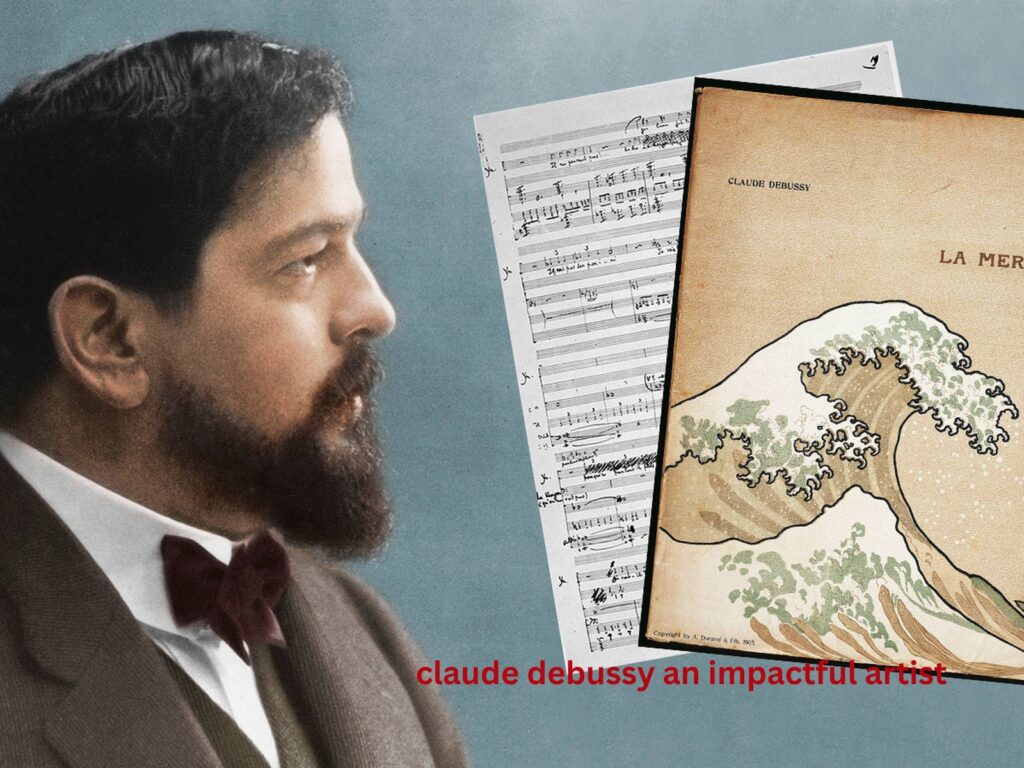Claude Debussy, a French composer born in 1862, remains a towering figure in the world of classical music. Known for his innovative approach and distinctive sound, Debussy is often regarded as a revolutionary who changed the course of music in the late 19th and early 20th centuries. His work pushed the boundaries of tradition, inviting listeners into a world of new textures, harmonies, and emotions. To understand his impact, we must delve into his unique contributions and their lasting influence.
The Revolutionary Spirit of Debussy’s Music
Debussy’s music is often associated with Impressionism, a movement that began in visual arts with painters like Claude Monet. However, he disliked the term, preferring to call his style “Symbolist.” Regardless of labels, his music represented a departure from the rigidity of classical structures.
Traditional Western music adhered to strict forms and harmonic rules, but Debussy introduced a freer, more fluid approach. His use of whole-tone scales, unconventional chord progressions, and ambiguous tonal centers created a sound that felt dreamlike and atmospheric. Pieces such as “Clair de Lune” and “Prélude à l’après-midi d’un faune” illustrate his ability to evoke emotions and imagery with subtlety.
Innovations in Harmony and Tonality
Before Debussy, harmony was dominated by clear rules that guided composers from one chord to another. Debussy rejected these conventions. He used parallel chords, unresolved dissonances, and scales that were unusual at the time, such as pentatonic and whole-tone scales. These innovations gave his music an ethereal quality that set it apart from his contemporaries.
His approach to tonality was equally groundbreaking. Instead of following traditional major or minor keys, Debussy often wrote music that felt keyless or that shifted seamlessly between keys. This created a sense of mystery and fluidity, making listeners feel as though they were floating in a soundscape.
Influencing Future Generations
Debussy’s innovations inspired countless composers in the 20th century and beyond. Figures like Maurice Ravel, Igor Stravinsky, and Olivier Messiaen were directly influenced by his work. Even in genres outside classical music, Debussy’s ideas resonate. Jazz musicians, for example, have drawn inspiration from his use of modal scales and nontraditional harmonies.
His impact extended beyond music composition. Debussy’s ability to evoke vivid imagery influenced film composers who sought to create atmosphere and mood. His pioneering work laid the groundwork for the atmospheric scores that define many films today.
Breaking Away from Tradition
Debussy’s career coincided with a time of great change in the arts. The late 19th and early 20th centuries were marked by a rejection of established norms and an embrace of experimentation. In this context, Debussy’s music was a reflection of the broader cultural shift toward modernism.
He challenged the dominance of Germanic musical traditions, which had been the standard in Europe for centuries. Composers like Beethoven and Brahms were revered for their mastery of form and development, but Debussy’s music was more intuitive and spontaneous. His emphasis on color and mood over structure and development made his work a refreshing alternative.
A Master of Orchestration
One of greatest strengths was his skill as an orchestrator. He had an unparalleled ability to paint with sound, using instruments in innovative ways to create textures and colors. In works like “La Mer,” he captured the essence of the sea, from its tranquil beauty to its stormy power. His use of orchestral colors influenced many composers and set a new standard for expressive orchestration.
The Personal Side of Debussy’s Art
Debussy’s music was deeply personal, reflecting his inner world and emotions. He often drew inspiration from literature, nature, and art. Poets such as Paul Verlaine and Charles Baudelaire influenced his work, as did the paintings of the Impressionists. His love for the natural world is evident in pieces like “Clair de Lune,” which captures the serene beauty of moonlight.
Despite his success, Debussy’s life was not without struggles. Financial difficulties, failed relationships, and health problems often plagued him. Yet, he channeled these challenges into his art, creating music that continues to resonate with audiences.
Conclusion
Undeniably an impactful artist. His ability to innovate while maintaining an emotional connection with his audience set him apart from his peers. Through his groundbreaking approach to harmony, tonality, and orchestration, he redefined what music could be and paved the way for future generations of composers. Today, his works remain as fresh and inspiring as they were over a century ago, proving that his impact on the world of music is both profound and enduring.

